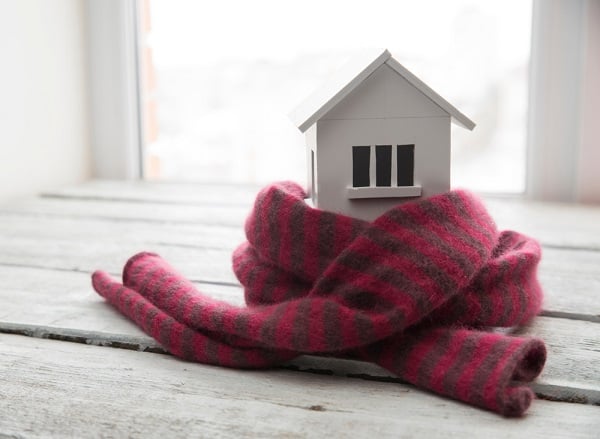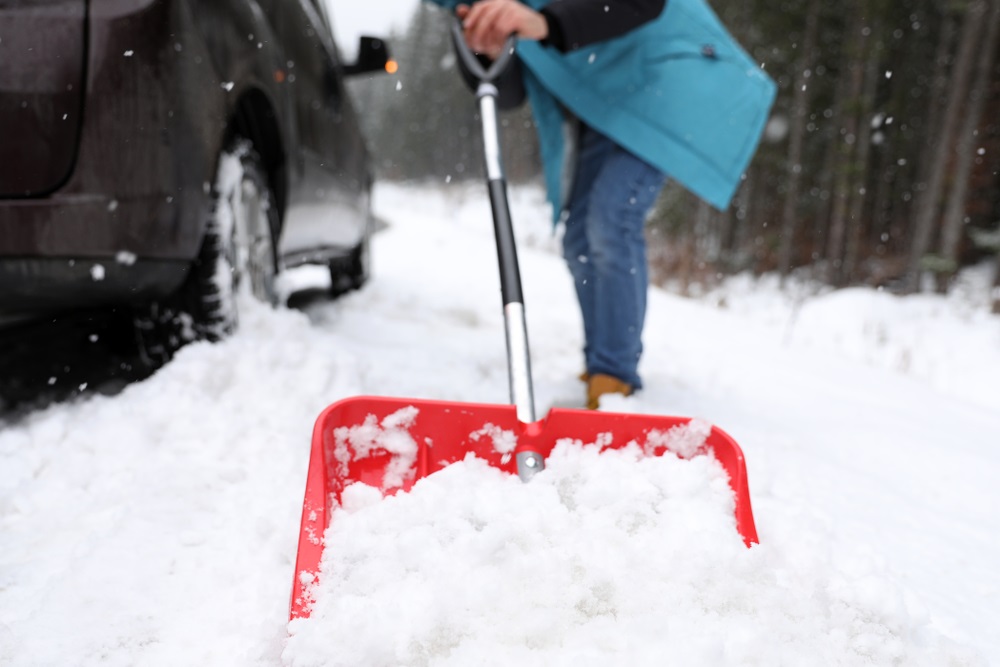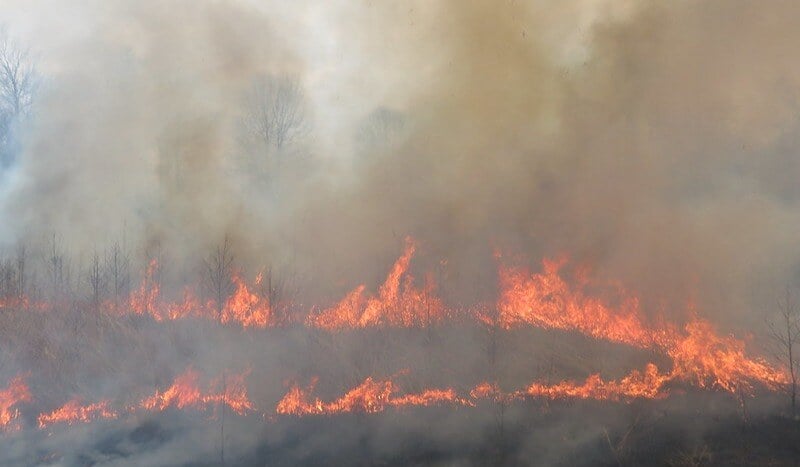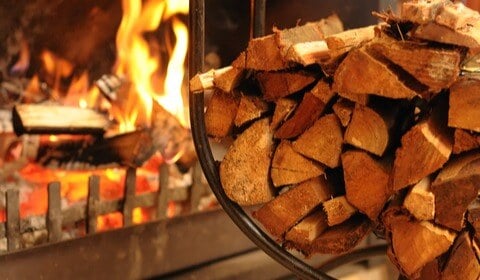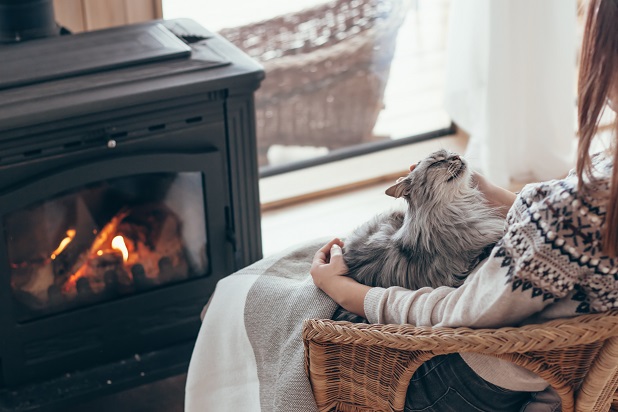
December 21st marks the first official day of winter, the Winter Solstice. Virginia winters can be mild, but we also have our share of frigid days and nights. Brrrrrr! Who's thankful for extra heat from fireplaces, wood stoves, and electric heaters? Don't forget that using extra heat equipment safely is critical to your family's well-being and the protection of property in your home this winter.
Fire dangers from space heaters and fireplaces
Most home fires that occur in December, January, and February are due to the increased use of heating equipment. Stationary or portable space heaters pose a significant fire hazard and cause 86% of home heating fire deaths. Preventable chimney fires can have a costly impact including loss of valuable property, displacement, and possible injury, in addition to expensive home damage and restoration. You can protect your home with adequate homeowners insurance and keep your family safe this winter with our supplemental heating safety tips!
Basic home heating equipment safety practices
These critical tips for safe home heating are the start to protecting your home and family.
- Place carbon monoxide and smoke detectors on every level of your home.
- Replace batteries annually and check the expiration date. Smoke detectors, even the hardwired ones, expire after ten years. They may still work but are less sensitive to smoke detection!
- Never use appliances like ovens to heat your home.
- Use fluid-fueled heaters, like kerosene heaters, outdoors only.
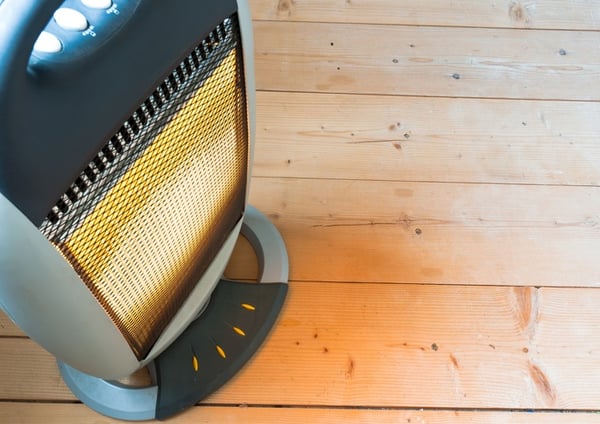
Electric heater safety tips
The vast majority of home heating fire deaths involved stationary or portable space heaters. Here are routine practices that can protect your family and home:
- Keep at least 3 feet of space between heaters and furniture, curtains, and anything that can burn.
- Always keep a close eye on heaters and never use them when you sleep.
- Plug electric heaters directly into the wall outlet rather than use extension cords or power strips.
- Buy UL-rated space heaters with safety features like automatic shut-off in case of tip-over.
- Check for heating equipment recalls.
- Make sure the electrical cords of heating equipment are not frayed or cracked.
- Avoid using the same circuit or outlet for an electric heater as another heater or other high-wattage electronics or appliances like a TV, DVR, laptop, printer, lamp, or microwave.
- Never place power cords under rugs or through high-traffic areas.
- Never put wet clothes or any fabric on or close to an electric heater to dry.
- Unplug your heater when you're not using it, especially when you go to bed or leave home.
Fireplaces and wood stove safety practices
There are an estimated 25,000 chimney fires annually in the US, accounting for nearly 125 million dollars in property loss. To prevent chimney and wood stove fires:
- Have an annual inspection and cleaning to remove creosote build-up.
- Do regular fireplace and wood stove maintenance with regular use.
- Use a fireplace screen to prevent sparks from flying out of your fireplace and to protect children and pets from coming in contact with fire.
- Disposed of ashes in a metal container, never paper or plastic.
- Avoid substitute fuels or burning mediums like newspaper or charcoal.
- Accelerants like lighter fluids to start or fuel fires are dangerous!
- Always put out fires completely before you leave home or go to bed.
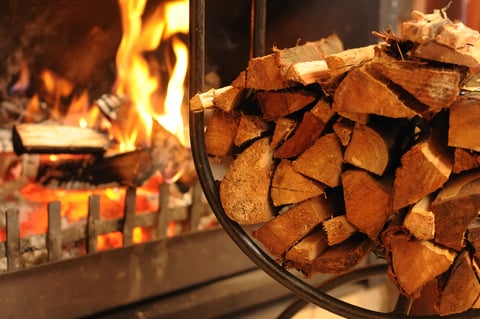
Does home insurance cover damage from heating equipment?
Yes, home insurance can cover damage from home heating equipment like space heaters, wood stoves, and fireplaces. Fire is a standard covered peril under most homeowners insurance policies and damage caused by supplemental heating is likely covered up to your policy limits. However, fireplaces, wood-burning stoves, kerosene and space heaters are not efficient enough to safely heat an entire modern home. Using them as such is more likely to cause a fire. Therefore, most carriers require a central heat in the insured home, and claims for property damage by equipment intended to be supplemental heaters will likely be denied if used as the primary heating source.
The use of oil-based furnaces and wood stoves as primary heat sources can result in higher home insurance rates due to the increased risk of a home fire. The best way to find out about the impact on your home insurance costs is to speak with an independent insurance agent.
Fire safety home insurance discounts
There are a few smart ways to turn home fire prevention practices into home insurance discounts such as purchasing or building a home made of fire-resistant materials, such as concrete, brick, or gypsum, vs. a house made of wood frames or logs. Carriers also want to reward their customers for protecting their home and property with fire prevention equipment such as:
- Sprinklers
- Fire alarms and smoke detectors
- Fire extinguishers
After fireproofing your home, you can also protect your family's skin and sinuses. All this extra heat can really dry things up! For tips to stay comfortable, read our article on what you can do to keep your home air quality healthy during the coldest winter weather. 
THE NORTHERN NECK INSURANCE INTEGRITY PROMISE — We pledge to provide straight talk and good counsel from our NNINS Virginia insurance experts through our blog. While we hope you find this to be a helpful source of information, it does not replace the guidance of a licensed insurance professional, nor does it modify the terms of your Northern Neck Insurance policy in any way. All insurance products are governed by the terms in the applicable insurance policy.

